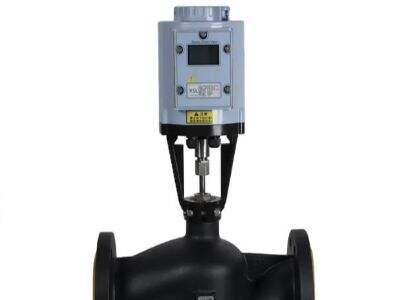Overall valves are a necessary product for many industries Liquids or gases flow through them (aid regulating the flow) If you ever have to select valve actuator, it will help if you know distinctions among Electric Linear Valve Actuators and Pneumatic Actuators. This article is written for you to comprehend what are the good and bad things associated with each type of actuator. Thus, by the end of it, you will know which one to choose according to your needs.
Electric Versus Pneumatic in Valve Actuation
The Electric Linear Valve Actuators by Xiyena, as the name says, uses electricity to function. They are used to aid in the precise control of valves. Instead, you can manipulate and move them in any way imaginable while they go mysteriously quiet. Since you can run them without your hands, they are easy-to-use. Marking them pricier than pneumatic actuators to some people from the get-go. The good news is that they typically become more energy efficient over better time for the environment.org and could also save you money in the long run.
Conversely, pneumatic actuators utilize compressed air to operate. Actuators generally used in scenarios including power plants and oil and gas industries, It is famous for being very cheap and also as efficient, a strong pull whenever must be done by the delta machine. Nevertheless, it has some cons. Pneumatic actuators, for example, are often incredibly loud in their operation and can be more difficult to regulate when it comes to speed and force than electric actuators.
Choosing the Right Actuator
Which type of actuator can be used to replace your old one depends on the purpose that you want each of them to serve. If the desired requirement is control the flow of valve with accurate precision, then Linear Electric Control Valves Actuators make a good selection. Electronic systems enable them, which ensure precision of work performed by rC bots. These applications are particularly prevalent across industries where materials may be harsh (eg oil and gas) or relatively delicate and require a cleaned environment such as food processing.
So, if you have an operation where speed and ease are more important to you then the Pneumatic Actuators may be a better option for you. These are well known for their fast response times and are ideal for industrial jobs. On the other hand, they might not be your first choice if you have to work outside or are looking at smaller valves that need precision handling.
Determining if Electric or Pneumatic Actuators (or a Combination of the Two) are Right for your Operation
While deciding on an actuator, you are supposed to consider a lot of things. We outline the use cases for your actuator, what kind of power you have access to, how much torque is necessary for your jobs and what distance/area you need to move the actuator. Electric linear valve actuators are fantastic for adjusting the valves with greater precision perhaps in the way pneumatic actuators might not as effectively. Cameras perform a safe and precise work However, if your application requires a high degree of movement, more power and more complex functions, you may want to consider using Pneumatic Actuators.
What Are Electric and Pneumatic Actuators
So now as the comparison, aspects come in while comparing both types of actuators. Get an idea of the speed, controllability and performance accuracy you can expect from them. The Electric Linear valves Actuators are controllable from afar; thus happening to be the most accurate forms of control. They can accelerate or decelerate quickly if you need them; allowing for flexibility on the go.
While Pneumatic Actuators are based on compressed air. This dependence can reduce their precision and movement in relation to electric actuators. They also require air to function so this can cause delays and even issues. They can be very powerful and helpful, but still quite finicky if not used the way they should, something so to remember.
Cost, Performance and Efficiency
There are 3 main things to think about when youre contemplating a valve system — the cost, how it saves resources and how safe it is. Electric Linear Valve Actuators move with high accuracy. The best part is, as they are meant to be precise, it can save you time and materials. The initial cost of this actuators can be a little high, but the efficiency they offer can save you money on logistics in the long run.
Pneumatic Actuators Is more Bendable and mostly cost-effective but may not be as correct. They can deliver high force and are more cost efficient to setup and maintain. They are an ideal solution for office work in fields with potentially high force requirements such as fuel and gas, where they're helpful to a higher stress control valve.
 EN
EN
 AR
AR
 CS
CS
 FR
FR
 HI
HI
 KO
KO
 PL
PL
 PT
PT
 RO
RO
 RU
RU
 ES
ES
 TL
TL
 IW
IW
 ID
ID
 LT
LT
 SR
SR
 SL
SL
 UK
UK
 VI
VI
 ET
ET
 HU
HU
 TH
TH
 TR
TR
 FA
FA
 MS
MS
 UR
UR
 BN
BN
 JW
JW
 MN
MN
 NE
NE
 TA
TA
 MY
MY
 KK
KK
 UZ
UZ
 KY
KY



